France's Macron Hails Iranian Protests As ‘Revolution’
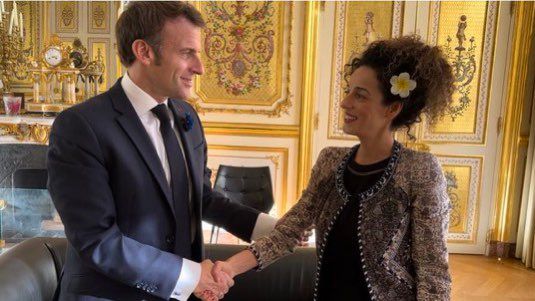
French President Emmanuel Macron has met Iranian female activists and has hailed the protests in Iran against the Islamic Republic, calling it a “revolution”.

French President Emmanuel Macron has met Iranian female activists and has hailed the protests in Iran against the Islamic Republic, calling it a “revolution”.
During a meeting with a delegation of exiled female Iranian rights activists, the French president said, “We welcomed with great honor and pleasure a delegation of Iranian women,” adding “I want here to really emphasize to them again our respect and our admiration in the context of the revolution they are leading.”
According to the Elysee, the delegation included US-based activist Masih Alinejad, Shima Babaei, and Ladan Boroumand, the co-founder of a Washington-based rights group.
After the visit, Masih Alinejad wrote in a tweet that “France can be the first country to officially recognize this revolution. France must meet the Iranian opposition instead of regime officials and to prepare the EU for a secular Iran.”
She also noted that “I attended this meeting with a delegation of Iranian women in order to present a clear image of the regime’s crimes,” stating that Roya Piraei, whose mom was killed in the revolution, told Macron not to shake hands with Iranians’ killers.”
On Thursday, Masih Alinejad also announced the start of the “The World Liberty Congress” which she said founded with former world chess champion Garry Kasparov and Leopoldo Lopez, two activists opposing the governments of Russia and Venezuela.
Nine weeks into the uprising of the Iranian people against autocratic clerical rule, well over 300 people, including 41 children and 24 women have been killed by security forces.
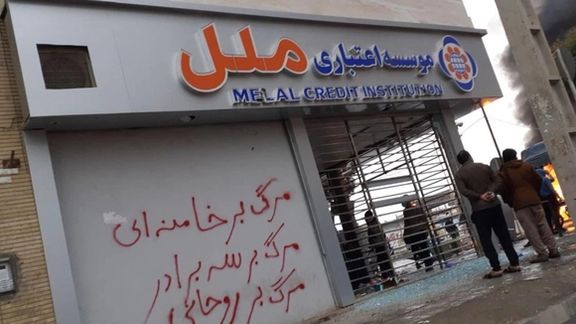
Anonymous activists in Iran have set Tuesday as commemoration day for 1,500 people killed by security forces in November 2019, calling for large demonstrations.
At the same time, activists abroad have also issued calls for commemoration protests in many cities, spanning from Australia to North America at the end of the month.
A joint call by the Youth of Tabriz, Zanjan, Esfahan, Mashhad, Ahvaz, Gorgan and Babol has urged people to pour into the streets “on the anniversary of the killing of the youths in November 2019,” on November 15.
“We will start from high schools, universities and markets and continue with neighborhood-centered gatherings to move to main squares of cities,” read part of the statement.
A series of nationwide protests in Iran, sometimes known as Bloody November, took place in 2019. Initially triggered by a 50–200% increase in fuel prices, the demonstrations quickly turned to calls for the overthrow of the government in Iran and Supreme Leader Ali Khamenei. As many as 1,500 Iranian protesters were killed mostly by gunfire of security forces in less than a week.
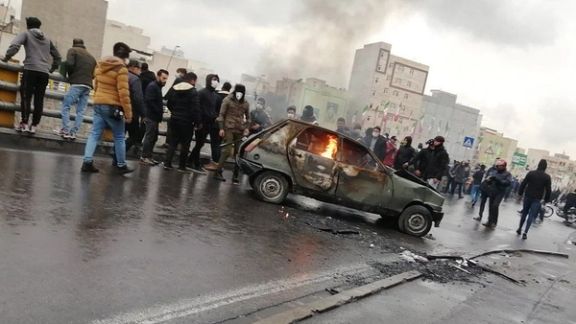
The anonymous youth groups have been issuing calls for protests since popular demonstrations began in September. It appears there is no central leadership organizing the people, but there are possibly links among activists in various parts of the country. The absence of a central leadership has perhaps protected the movement against the government’s ability to arrest and hold individuals indefinitely, but at the same time lack of a clear leadership poses its own problems.
So far well-over 300 protesters have been killed and thousands arrested, although the government has not issued any figures.
Earlier, the Association of Families of Flight PS752 Victims announced that a large march would also be held in different cities of the world on Saturday, November 28.
On January 8, 2020, the Islamic Revolutionary Guard (IRGC) shot down Ukraine’s International Airlines Flight 752 flying from Tehran to Kyiv shortly after takeoff, killing all 176 passengers and crew aboard. Iran never presented a convincing reason for its callous act and tried to withhold information about the incident. Dozens of victims were Canadian citizens or permanent residents.
Since the current uprising began against Iran’s clerical regime almost eight weeks ago, the airliner victims’ association has organized large gatherings called, "The Time Has Come" all over the world; including a 100,000-strong march in Berlin and human chains in 80 cities worldwide.
Meanwhile, an anonymous group called “Youth of Lorestan Neighborhoods” also called for protests on Saturday at 5:00 PM in Iran’s western province.
Since the eruption of protests following the death of Mahsa Amini in police custody, numerous calls have been issued by groups, institutions, guilds, and associations for demonstrations, gatherings, and strikes.

An increasing number of Iranian lawmakers and former politicians blame the government, not foreigners for the nationwide uprising that has entered its 8th week.
Government officials in the core of the regime and military commanders in Iran keep blaming foreign countries and their alleged agents for instigating unrest in Iran.
Meanwhile, conservative political activists have joined their reformist counterparts in condemning 227 lawmakers who have called for death sentences for detained protesters.
Wahab Azizi, a conservative activist told Iranian Labour News Agency (ILNA) on Friday that “The protests are deep-rooted and have several reasons. You cannot attribute them to the actions of enemies. Protests started in 2009 and have continued in different forms since then.”
He added that the parliament and other parts of the Iranian government have still not realized the nature of the protests. He added: “Protests could be handled and controlled quickly if they have only economic or even political causes, but the protests that have cultural and social reasons should be addressed in a convincing way.”
Condemning his colleagues who called for death sentence for detained protesters, Azizi said: “Such uncalculated remarks have created the current crisis in Iran.”
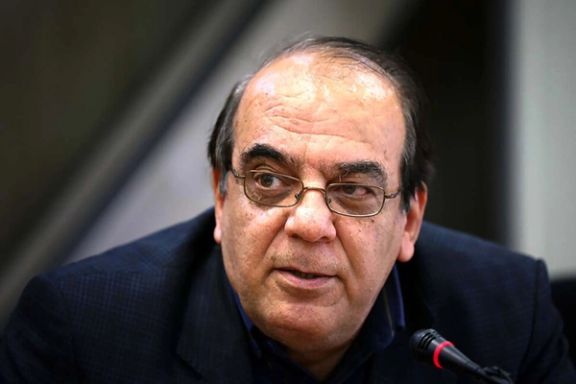
Meanwhile reformist commentator Abbas Abdi wrote in a tweet: “The lawmakers who have been elected with a minimum number of votes thanks to the Guardian Counci’s vetting were not expected to behave otherwise.” Abdi was referring to wholesale disqualification of hundreds of candidates in the 2020 parliamentary elections that led to the current hardliner majority in the legislature.
Azizi pointed out that labeling the protests as riots will make no difference in its nature as the denial of a reality will not eliminate it. Trying to sort out the problem by issuing orders will only widen the gap between the people and the regime. “If officials blame the protests on enemy infiltrators, they should know that even if that is true, it is because of their own inefficiency,” Azizi said.
In another development, lawmaker Jalil Rahimi Jahanabadi posted a picture of hardliner newspaper editor Hossein Shariatmadari next to a tweet in which he said, “We should look for infiltrators among the hardliners.” He said Shariatmadari’s recent article in which he called on the police and IRGC to use combat ammunition to shoot protesters was tantamount to pouring gasoline on fire.
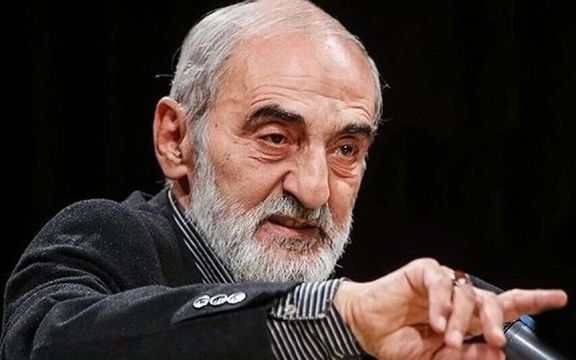
Jahanabadi, a member of the Iranian Parliament’s committee for national security, further called on intelligence agencies to keep an eye on the remarks made by hardliners who pretend to be super revolutionaries.
Meanwhile, conservative lawmaker and former intelligence officer Mohammad Hassan Asafari criticized a comment by government Spokesman Ali Bahadori. Speaking at a university earlier this week, Bahadori said that security forces could have easily shot the protesters with combat ammunition rather than hitting them with shotguns.
Asafari advised the spokesman that the situation needs to calm down and his uncalculated remarks had the opposite effect.
The commander of the army’s ground forces, Kiumars Haydari had also made some annoying remarks about harsher measures against the protesters and called them “flies”. Reformist commentator Sadeq Zibakalam told the government spokesman in a tweet on Friday: “Haydari is a military man and does not know about civil society, the law and people’s rights so he calls them flies. But you as someone who has studied law were not expected to threaten the people.”

Germany and Iceland submitted a request on Friday on behalf of dozens of countries to hold a special session at the UN Human Rights Council on the ongoing protests in Iran later this month.
According to the letter signed by the two countries' ambassadors., the request called for the session "to address the deteriorating human rights situation in the Islamic Republic of Iran, especially with respect to women and children."
At least one-third of the UN Human Rights Council's voting members backed the proposal, as is required for meetings outside of the body's normal agenda, meaning its convening is a formality.
According to the German diplomatic mission in Geneva, dozens of others also signed up, bringing the total number of backers to 44.
Earlier in the day, the Islamic Republic’s foreign minister warned the UN Human Rights Council over organizing any session to discuss the situation.
Alleging that the Islamic Republic has "deeply exercised restraint" in the ongoing unrest – which has left over 300 protesters dead and about 15,000 detained, Hossein Amir-Abdollahian told UN Secretary General Antonio Guterres that such a meeting should be held for countries that "promote violence and terror."

Protests across Iran took place Friday with many demonstrations in Sistan-Baluchestan and Kordestan provinces with some other protests in metropolitan areas.
Ceremonies for the 40th day since the death of several protesters were held on Friday in cities across the country, with people chanting slogans against the Islamic Republic and security forces opening fire at them.
Having become the new normal in the city of Marivan, in West Azarbaijan province, night-time protests continued in the city with people setting trash cans on fire.
In addition to continuing fierce protests since earlier this week in the Kurdish-majority cities of Sanandaj and cities in the southeastern province of Sistan and Baluchestan, the provincial capital of Lorestan province, Khorramabad, was also the scene of intense clashes as people held a gathering for the 40th day after the death of Sam (Sepehr) Beyranvand.
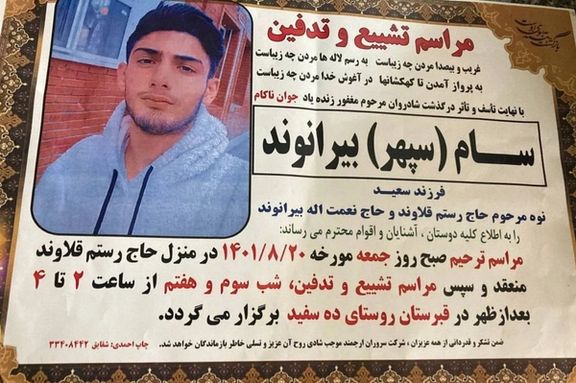
People in the cities of Mirjaveh and Rask, in Sistan and Baluchestan province near the border with Pakistan, were out chanting antigovernment slogans, describing the current protests as a “revolution.”
Security forces have again cracked down on protesters who took to the streets and chanted against the Supreme Leader and the IRGC in the province. Videos posted on social media show thousands marching in the streets of Zahedan and other predominantly Sunni Baluch population centers of Khash, Iranshahr (Pahreh or Bahreh), Rask, the border town of Pishin, strategic port city of Chabahar, and Saravan.
The leader of the Baluch people Molavi Abdolhamid also in his Friday sermon harshly criticized Supreme Leader Ali Khamenei’s rule.
Protesters in Zahedan and other cities took to the streets after Friday prayers chanting “Down with the Dictator,” “Death to Khamenei”, and “I’ll kill those who killed my brother,”. Videos also show people chanting slogans against the IRGC and its militia, the Basij as well as “From Zahedan to Tehran, I will give my life for Iran”.
Protesters also carried posters of Khodanour Lajoie, a young man shot to death on October 1. A photo of Lajoei chained to a lamppost by the police several months ago has turned into a symbol of government’s injustice in impoverished Sistan and Baluchestan.
Popular Sunni religious leader Abdolhamid once again blasted the use of lethal force against protesters and demanded punishment for those responsible for killing Baluch protesters and refuted claims of separatism brought against them by the government. Abdolhamid’s call for a referendum with the presence of international observers to decide the future form of government in Iran has angered hardliners. He recently expressed more liberal views about the role of women in society after being criticized by some Baluch activists for not mentioning women and acknowledging gender equality in his fiery Friday prayer sermons.
Reports about the alleged rape of a 15-year-old Baluch girl in June by a police commander in Chabahar, who has remained immune to prosecution, sparked protests in Zahedan on September 30. At least 100 protesters were reportedly killed in the province since then.
Gathering for the 40th day death anniversary of two protesters killed in Tehran’s ceremony spread to several neighborhoods in different parts of capital Tehran.
In some neighborhoods of Tehran, protesters chanted slogans against the regime for killing children and young adults. “Infanticidal regime, we don’t want,” chanted the protests.
The international support for the protests in Iran is getting stronger as France and UK are calling for punitive measures against the Islamic Republic and more than one million have signed a petition by Amnesty International to urge UN member states to take action.
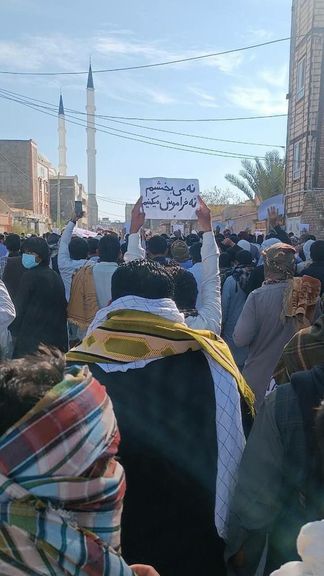
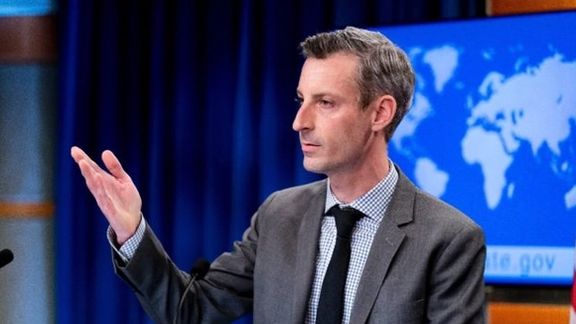
US State Department Thursday refused to characterize Iran's protests as a quest for democracy, repeating that its up to the protesters to say what they aspire to.
The antigovernment movement is clearly seeking to overthrow the Islamic regime, judging by daily slogans demonstrators chant and their social media posts, but the United States refuses to say that Iranian protesters want to change the regime and establish a democratic, secular form of government.
In his media briefing November 10, spokesperson Ned Price refused to say what the protest movement is about, insisting that it is up to the people involved to characterize their movement.
But before that, Price had already uttered words that essentially did characterize the movement. Speaking earlier during the briefing he said demonstrators demand reforms.
"We have spent a good deal of time at senior levels…speaking about ways that we can demonstrate our support for those brave Iranians, including many women and girls, who are peacefully demonstrating, taking to the streets, to call for the reforms that they’re demanding," Price said.
The Biden Administration’s reluctance to call the protests a movement demanding democracy and a new form of government started after its special envoy for Iran Rob Malley in October sent a tweet that sparked strong objections by Iranians.
Malley in his tweet said that Iranians were protesting to have the Islamic Republic “respect their human rights and dignity.” Iranians on social media strongly objected, saying ordinary people risking their lives in the streets had proven that they reject the clerical regime and want a new, democratic government and not just respect from an oppressive regime.
Malley apologized and the administration adopted its current position of refusing to characterize the demands of the protest movement, while it does call other movements around the world as protests for democracy.
Some argue that the administration is still interested in returning to the 2015 nuclear accord known as the JCPOA, and is reluctant to further antagonize the Iranian regime, which is already blaming “enemies” for instigating the protests.
After 18 months of JCPOA negotiations, Iran put forward demands in August that Washington rejected, but it has not declared an end to the talks.
Meanwhile, there have been many demands by US lawmakers and Iranian Americans to replace Malley as Iran envoy. An online petition launched in October has collected more than 127,000 signatures.
The petition was launched after Malley’s tweet. The sponsor said that the special envoy “minimized the Iran protest movement by portraying it as merely a quest by Iranians to have the government in Tehran ‘respect their human rights and dignity’.”
But the remark by Price about reforms, however, revealed that the administration still regards the protests as a reform movement despite the debacle with Malley’s tweet. Price was trying to argue that the administration is trying to galvanize support for Iranians, when he said demonstrators are taking to the streets, “to call for the reforms that they’re demanding.”
Already, several well-known Iranian Americans on social media have criticized Price for his remark.